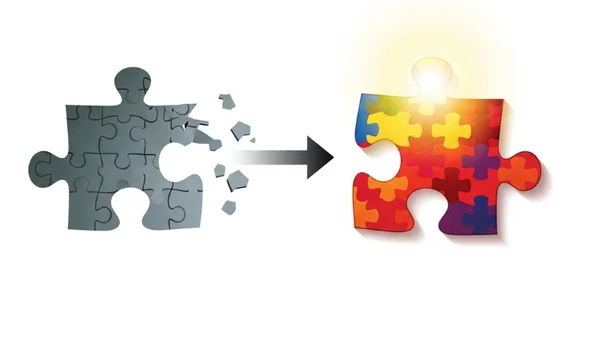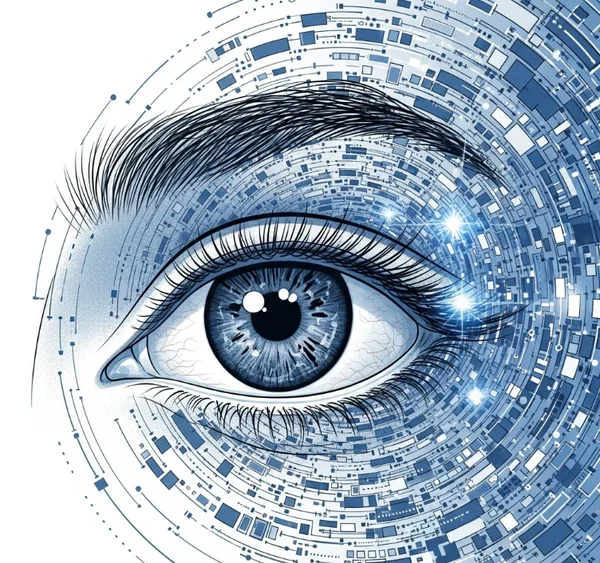Neurodiversity Strengths: Unique Neurodivergent Advantages
June 9, 2025 | By Morgan Hayes
When we talk about neurodiversity, conversations often gravitate towards the challenges individuals might face navigating a world predominantly designed for neurotypical minds. However, this is only part of the picture. It's time to shift the lens and explore the remarkable neurodiversity strengths and neurodivergent advantages that many neurodiverse people possess. This article aims to uncover some of these hidden strengths neurodiverse individuals often bring to the table, celebrating the unique talents that enrich our world. If you're interested in a broader understanding, you can explore our Neurodivergent Test site resources.
Shifting Perspective: From Deficit to Difference and Strength
To truly appreciate the neurodivergent advantages, we first need a paradigm shift in how we view neurological differences.
Understanding the Value of Diverse Thinking
The neurodiversity paradigm encourages us to move away from a purely deficit-based model, which focuses only on what neurodivergent individuals might find challenging. Instead, it champions the idea that different ways of thinking, learning, and perceiving are not only valid but also incredibly valuable. Just as biodiversity strengthens ecosystems, cognitive diversity—or neurodiversity—strengthens human society with a wider range of skills and perspectives.

The Strengths-Based Model of Neurodiversity
A strengths-based approach to neurodiversity actively seeks to identify and cultivate the unique talents and abilities associated with different neurotypes. This doesn't mean ignoring challenges, but rather providing a more balanced and holistic view that recognizes individuals for their full range of capabilities. Recognizing these neurodiversity strengths is key to fostering environments where everyone can thrive.
Creativity and Innovative Thinking: Seeing the World Differently
One of the most frequently cited neurodivergent advantages is a heightened capacity for creativity and innovative thinking.
Novel Connections and Original Ideas
Neurodivergent individuals often process information and see patterns in ways that differ from the neurotypical majority. This can lead to making novel connections between seemingly unrelated concepts, resulting in highly original ideas and insights. This neurodivergent creativity can be a powerhouse for innovation.
Artistic Talent and Unique Forms of Expression
Many neurodiverse people excel in artistic fields, whether it's music, visual arts, writing, or performance. Their unique perspectives can translate into deeply compelling and unconventional forms of expression, offering fresh and thought-provoking artistic experiences.
Inventiveness and Imaginative Solutions
The ability to think "outside the box" is a hallmark of innovative thinking neurodiverse individuals often display. They may approach problems from entirely new angles, leading to inventive solutions that others might not have considered.
Attention to Detail and Pattern Recognition: The Power of Focus
Certain cognitive patterns often seen in neurodivergent individuals can translate into powerful strengths.
Excelling in Tasks Requiring Precision and Accuracy
A strong attention to detail neurodivergent individuals may possess can make them exceptionally good at tasks requiring high levels of precision and accuracy. This could be in fields like quality control, data analysis, editing, or scientific research.

Identifying Nuances and Inconsistencies Others Miss
Their unique way of processing information can also mean neurodivergent individuals are adept at spotting subtle nuances, inconsistencies, or errors that others might overlook. This skill in pattern recognition skills is invaluable in many contexts.
Strengths in Data Analysis and Systemizing
Some neurodivergent individuals have a natural aptitude for understanding complex systems, analyzing data, and identifying underlying structures or rules. This can manifest as a strength in STEM fields, coding, or any area requiring systematic thinking.
Deep Focus and Hyper-Productivity in Areas of Interest (Hyperfocus)
The phenomenon of hyperfocus, often associated with neurodivergence, can be a significant advantage.
The Ability for Intense, Sustained Concentration
Hyperfocus strengths include the ability to enter a state of intense, sustained concentration on a task or subject of interest, often for extended periods. During hyperfocus, distractions may fade away, allowing for deep immersion.
Achieving High Levels of Expertise and Output
This capacity for deep focus can lead to achieving high levels of expertise and significant output in areas aligned with an individual's passions. It can drive mastery and remarkable productivity when the conditions are right.
Channeling Passion into Productive Endeavors
When neurodivergent individuals are engaged in something they are genuinely passionate about, their ability to hyperfocus can transform that passion into tangible, productive outcomes, contributing to remarkable neurodivergent productivity.
Honesty, Authenticity, and a Strong Sense of Justice
Beyond cognitive skills, certain character traits are often highlighted as neurodiversity strengths.
Valuing Truthfulness and Direct Communication
A strong inclination towards honesty and directness in communication is a trait some associate with neurodivergence. This neurodivergent honesty can foster trust and clarity in interactions, though it might sometimes be perceived as blunt by those accustomed to more indirect communication styles.
Genuine Self-Expression and Resistance to Pretense
Authenticity neurodiverse individuals often display means a tendency towards genuine self-expression and a discomfort with social pretense or superficiality. This can lead to more authentic and meaningful connections.
A Commitment to Fairness and Ethical Principles
Many neurodivergent individuals report a strong, innate sense of justice and fairness. This can translate into a deep commitment to ethical principles and a drive to advocate for what is right.
Unique Problem-Solving Skills and Out-of-the-Box Approaches
Different ways of thinking can lead to unique ways of solving problems.
Approaching Challenges from Unconventional Angles
Neurodivergent individuals may not follow conventional thought patterns when tackling a problem. This can lead to them approaching challenges from entirely fresh and unconventional angles, which is a key aspect of neurodivergent problem solving.

Logical Thinking and Analytical Abilities
Strong logical thinking and analytical abilities are also noted neurodivergent advantages. They might excel at breaking down complex problems into manageable parts and applying systematic reasoning to find solutions.
Seeing Solutions Where Others See Obstacles
Their unique thinking styles can enable them to see possibilities and solutions where others might only perceive obstacles or dead ends, making them valuable contributors to any problem-solving team.
Loyalty, Deep Empathy, and Intense Passion
Emotional and relational strengths are also significant.
Strong Commitment and Dedication in Relationships and Interests
Once committed, whether to a person, a cause, or an interest, neurodivergent individuals often demonstrate profound loyalty and dedication. This can lead to long-lasting, meaningful relationships and sustained engagement with their passions.
Profound Emotional Depth and Compassion
While expressions of empathy might differ from neurotypical norms, many neurodivergent individuals experience neurodivergent empathy deeply and possess a profound capacity for compassion. They may connect with the emotions of others in very intense ways.
Driving Force of Enthusiasm and Engagement
When passionate individuals who are neurodivergent engage with something, their enthusiasm can be infectious and a powerful driving force, leading to high levels of engagement and achievement.
Nurturing Neurodivergent Strengths: Tips for Everyone
Recognizing these strengths is the first step; nurturing them is next. How can society better leverage neurodiversity strengths?
For Neurodivergent Individuals: Identifying and Owning Your Strengths
Take time for self-reflection. What are you naturally good at? What activities make you feel engaged and energized? Own these talents and find ways to integrate them into your life. Connecting with other neurodivergent people can also be validating and helpful in identifying shared strengths.
For Parents and Educators: Creating Supportive Environments for Growth
Focus on a child's interests and abilities. Provide opportunities for them to explore their passions. Adapt learning environments to accommodate different processing styles and sensory needs. Celebrate their unique ways of thinking and problem-solving. Creating supportive environments is key.
For Employers: Leveraging Neurodiverse Talent in the Workplace
Recognize the value that neurodiverse thinking can bring to your organization. Implement inclusive hiring practices and create accommodating work environments. Focus on skills and outcomes rather than rigid adherence to neurotypical social norms. Many companies are now actively nurturing neurodivergent talent.

Celebrating Neurodiversity: A World of Untapped Potential
Embracing neurodiversity strengths means moving beyond a narrow definition of "normal" and recognizing the vast tapestry of human talent. The neurodivergent advantages discussed here are just some examples of the unique perspectives and abilities that neurodiverse individuals contribute. By celebrating neurodiversity, we unlock a world of untapped potential, fostering innovation, creativity, and a more inclusive and understanding society for everyone.
This journey of understanding and appreciation is ongoing. What are your thoughts on the hidden strengths neurodiverse people possess? Share your insights in the comments below!
Questions About Neurodiversity Strengths and Advantages
Do all neurodivergent people have special talents or strengths?
While neurodiversity is associated with many potential strengths, it's important to remember that every individual is unique. Not all neurodivergent people will exhibit the same strengths, or "special talents," just as not all neurotypical people do. The key is to recognize and nurture individual abilities.
How can I identify my own neurodivergent strengths?
Self-reflection is a good start. Consider what activities you excel at, what you're passionate about, and what comes more naturally to you. Feedback from trusted individuals can also be helpful. Sometimes, what you perceive as a "quirk" might actually be a unique strength in the right context.
Are these strengths recognized in workplaces or schools?
Increasingly, yes, but there's still a long way to go. Many forward-thinking organizations and educational institutions are beginning to recognize the value of neurodiversity strengths and are implementing more inclusive practices. Advocacy and education are key to improving this recognition.
Can a "challenge" associated with neurodivergence also be a strength in a different context?
Absolutely! For example, intense focus (hyperfocus) might be challenging in a situation requiring frequent task-switching, but it's a huge asset for projects requiring deep concentration. What is perceived as "rigidity" might be exceptional consistency and reliability in another setting.
How can society better leverage neurodiversity strengths?
By creating more inclusive and accommodating environments in education, workplaces, and communities. This involves challenging outdated norms, valuing different ways of thinking, providing necessary supports, and listening to and learning from neurodivergent individuals themselves. You can learn more about understanding neurodiversity to contribute to this shift.